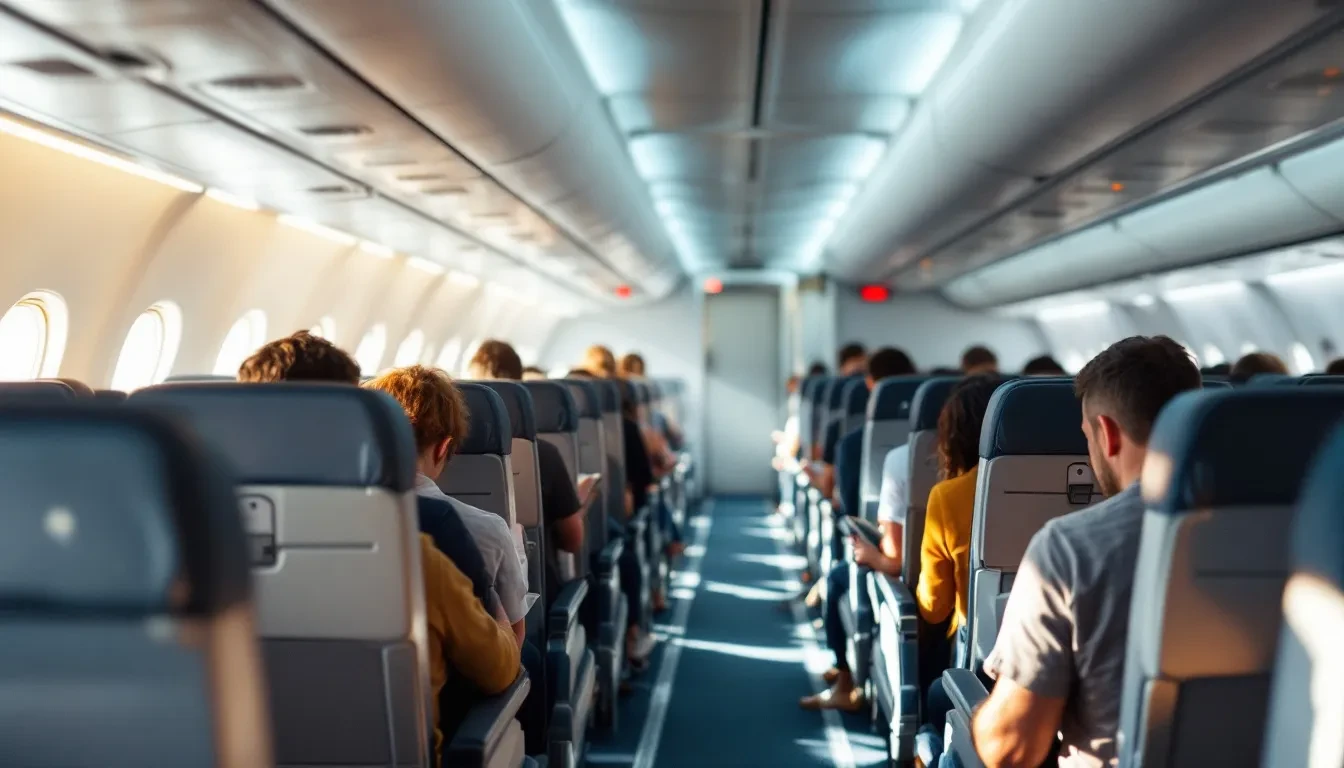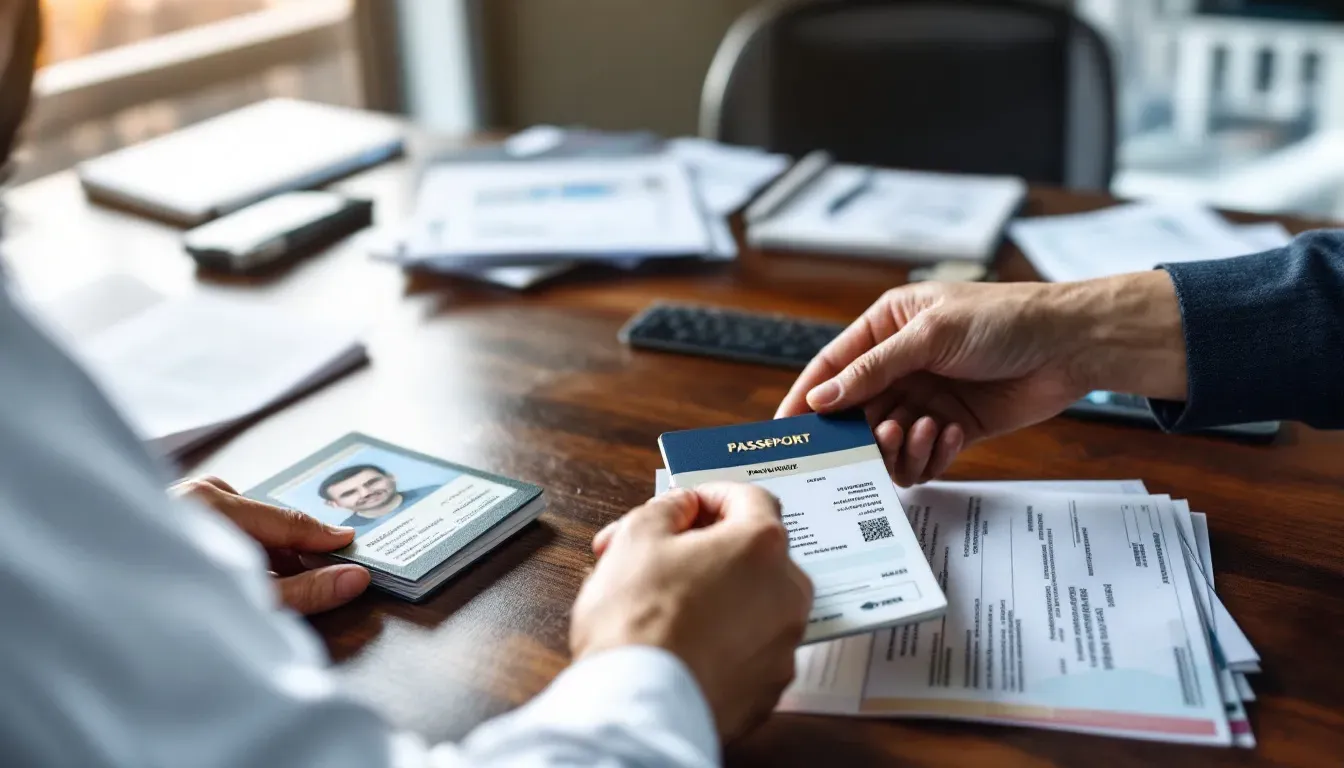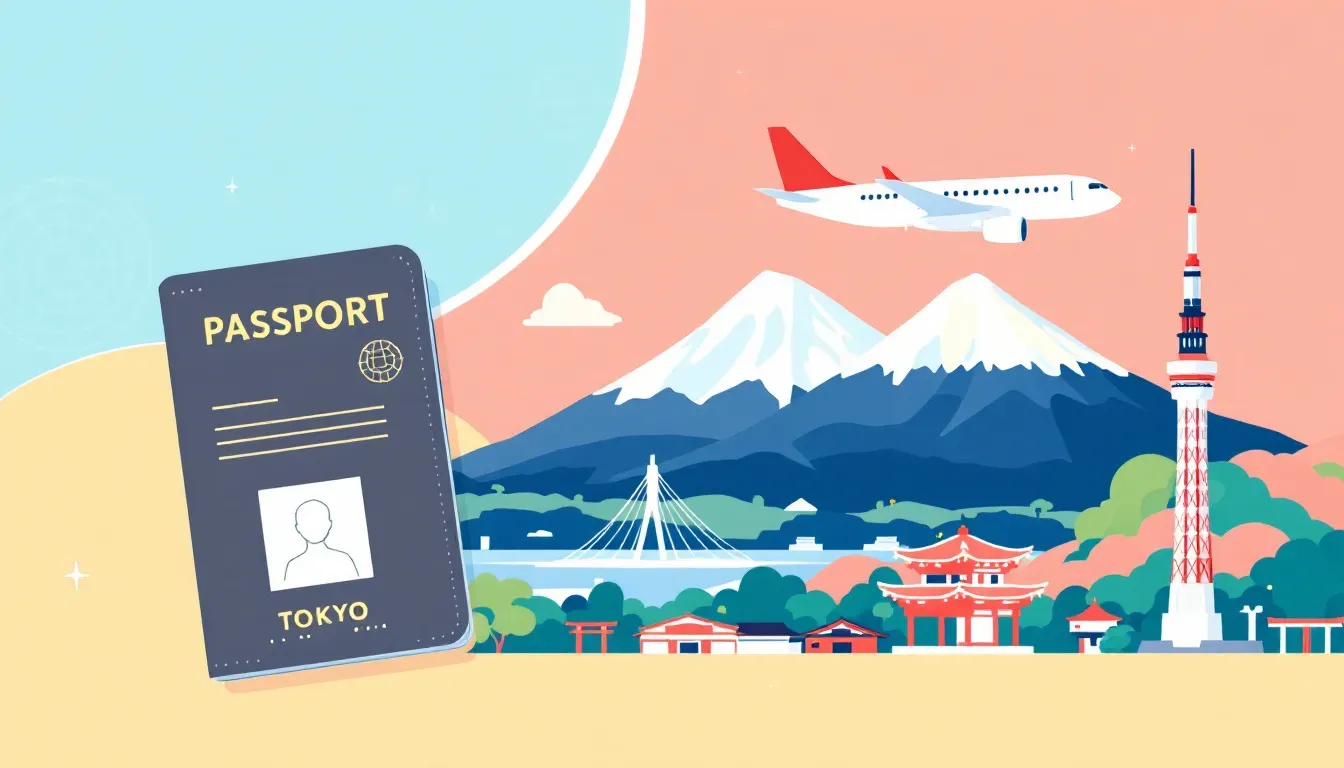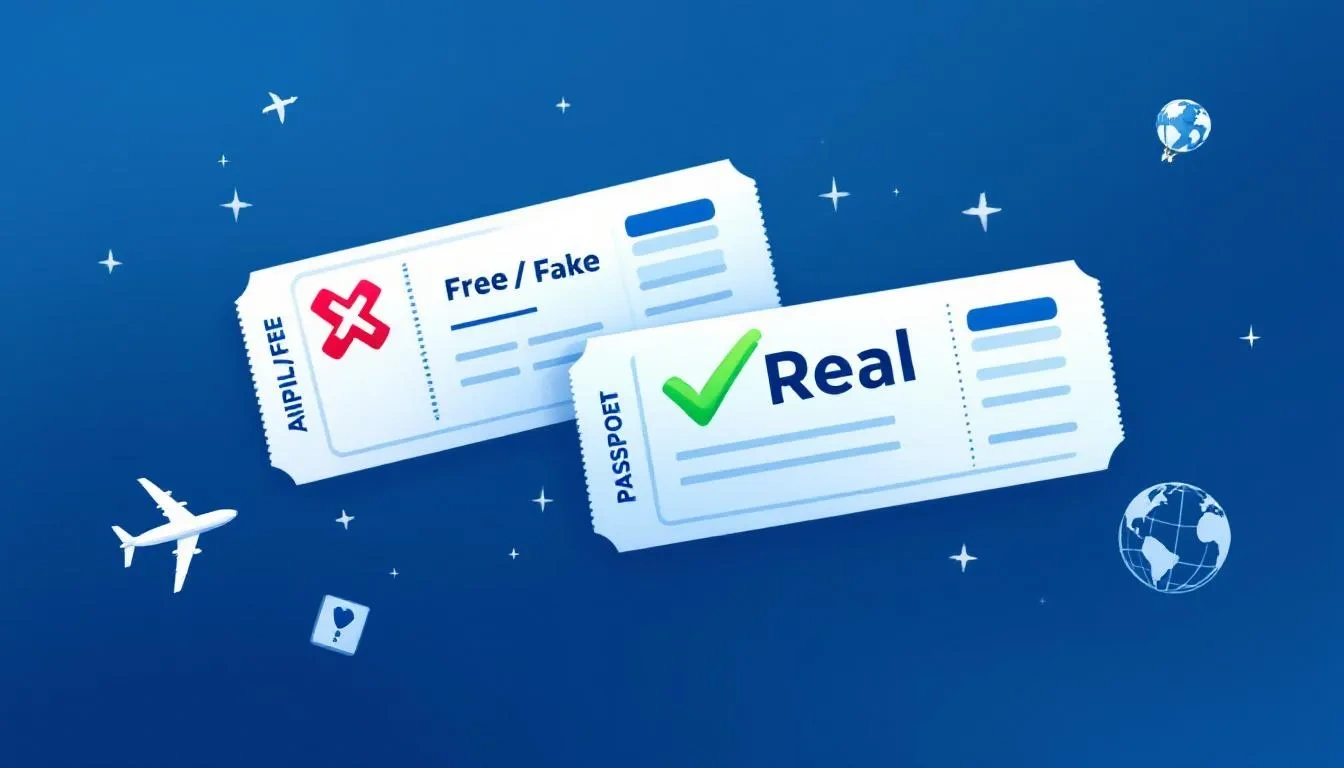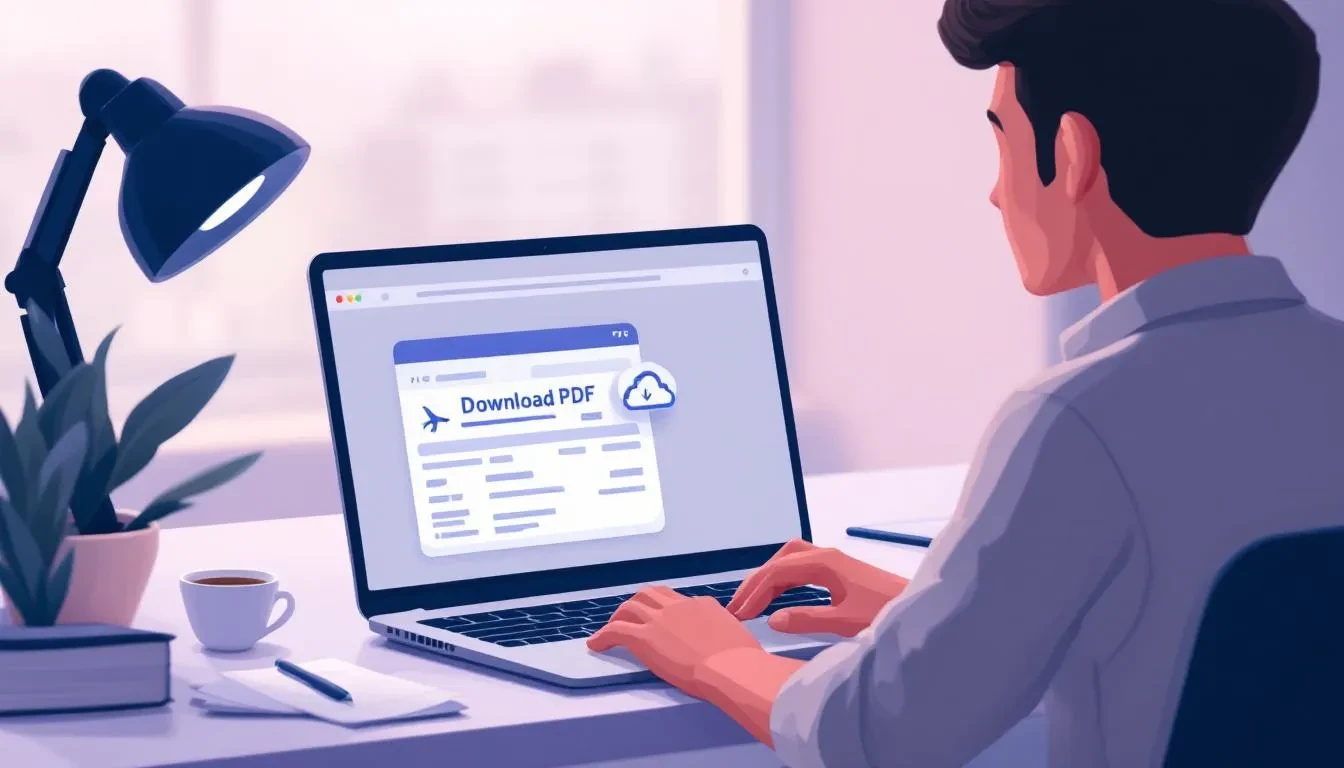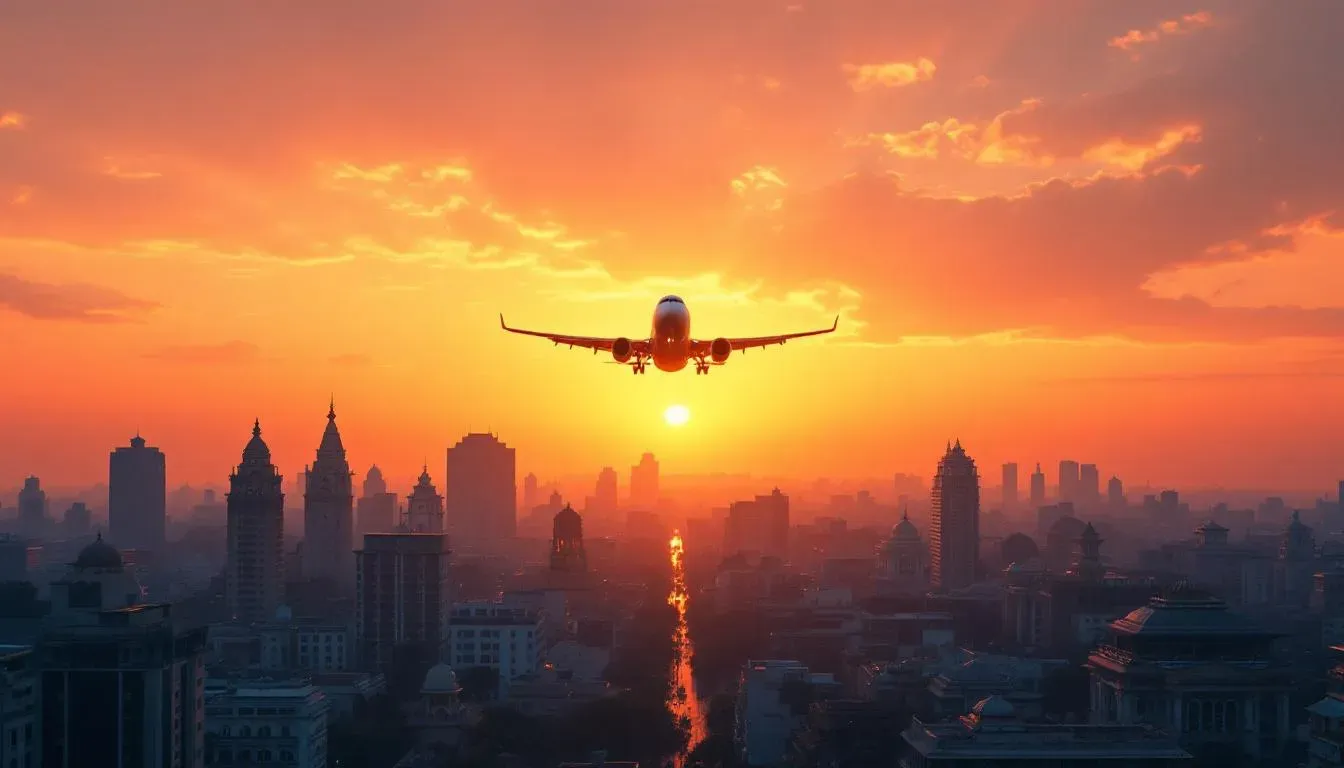How to Book Dummy Flight Ticket in India?
.webp)
✈️ How to Book a Dummy Flight Ticket in India for Visa Approval (2025 Guide)

If you’ve ever applied for a visa from India, you already know how tricky it can get. Embassies, consulates, and airlines often ask for a confirmed flight ticket before they’ll even look at your application. But buying a real one before your visa is approved? That’s risky and expensive. This is where a dummy ticket saves the day.
It’s a smart, temporary booking that looks like a real flight—complete with a PNR and travel details—but without the financial stress. Whether you’re a student applying for your first Schengen visa, a family planning a European trip, or a freelancer exploring Southeast Asia, this simple trick can make the process smoother. For more insights, explore our blogs or visit the FAQ section. In this guide, we’ll walk through everything you need to know about booking one safely in India. Learn more about our team on the About Us page.
Table of Contents
Why You May Need to Book a Dummy Ticket in India

If you’ve ever dealt with Indian visa paperwork, you already know it’s not for the faint-hearted. Every embassy seems to want a new document, and flight proof almost always makes the list. That’s where dummy ticket come in — not as a trick, but as a smart workaround to meet visa and travel proof requirements without spending a fortune on flights you may never take.
Let’s break down exactly when and why dummy ticket can be your best travel ally if you’re based in India.
Visa Applications: Your Ticket to Approval (Without the Risk)
Whether you’re applying for a Schengen visa, a student visa, or a visitor visa, you’ll find one line in the checklist that says “Proof of flight reservation.” This is where most Indian applicants get stuck. For detailed Schengen visa requirements, refer to Schengen Visa Info.
Buying a confirmed ticket before your visa gets approved is a gamble. What if your visa gets delayed or rejected? You’ll lose money in cancellation fees or worse, the full amount. A dummy ticket, legal for visa use, solves this perfectly. It gives you a verifiable flight reservation that looks legitimate, but it’s not actually booked for travel.
For Indian travelers, it’s become a norm—especially for:
-
Schengen visas (Europe) – Countries like France, Germany, and Italy often ask for a round-trip ticket. A dummy reservation works fine as long as it’s verifiable through a PNR.
-
UK and US visas – Though not mandatory, adding a flight reservation strengthens your application and shows intent to return.
-
Canada and Australia – Immigration officers appreciate seeing travel plans upfront, even if tentative.
-
Student visas – Universities sometimes require proof of onward travel, and students prefer dummy tickets because real ones are too costly before final approval.
If you’re applying through VFS or any visa facilitation service in India, they’ll confirm that a flight reservation is accepted as long as it looks genuine. It’s all about showing intent—not about buying an actual ticket.
Exploring Multiple Destinations? You’ll Need Proof of Travel Plans
Many Indian travelers today don’t stick to one destination. You might be planning to explore Thailand, Vietnam, and Singapore in a single trip, or maybe France, Switzerland, and Italy across Europe.
When you apply for visas or travel through multiple borders, immigration officers often ask for proof of your next journey. A dummy ticket helps you outline your route clearly. You can show where you’re going next, without locking in expensive fares for every stop. So, a dummy ticket benefits you here as well.
It’s also great for digital nomads or remote workers from India who live for a few months in different countries. For example, if you’re working from Bali but plan to visit Malaysia next month, immigration might ask, “Where’s your onward ticket?”
That’s your cue. A dummy ticket can make the process effortless:
-
It’s quick to generate.
-
It satisfies immigration without needing a real booking.
-
It proves you have an exit plan.
This small piece of paper can save you hours of explanation at the airport.
On-Arrival Visa Countries: A Dummy Ticket is Practically Mandatory
If you’ve ever flown to Thailand, Dubai, or Sri Lanka on a visa-on-arrival, you know what the first immigration officer asks — “Do you have a return ticket?”
This is standard practice for most countries that allow Indians to enter without a prior visa. They simply want to ensure you’ll leave within your allowed stay.
A dummy ticket helps you:
-
Show proof of onward or return travel without buying a full-priced ticket.
-
Avoid being denied boarding at Indian airports during departure checks.
-
Stay flexible with your travel plans if you decide to extend or change destinations later.
Here are a few examples where dummy tickets work perfectly for Indians:
-
Thailand – Needs a return or onward ticket within 30 days.
-
UAE (Dubai) – Proof of departure within visa validity is mandatory.
-
Indonesia and Malaysia – Onward travel is checked during immigration clearance.
So, even if you’re just going for a quick trip or a remote work stint, keeping a dummy ticket ready is a smart habit.
Proof of Onward Travel: Airlines Don’t Always Let You Board Without It
Here’s something many first-time travelers from India don’t realize — sometimes, it’s not the country, but the airline that demands onward travel proof.
Before boarding an international flight, airlines are required to ensure passengers won’t be stranded or deported at the destination. If you’re entering a country visa-free or with a visa-on-arrival, the airline might ask to see a return or onward ticket.
If you don’t have one, they can actually refuse to board you.
A dummy ticket is your safety net. You can show it at the check-in counter or boarding gate, and it’s fully verifiable through the airline’s system. You won’t need to argue or rush to book a last-minute ticket at double the price.
It’s especially useful for Indians traveling to:
-
Southeast Asia (Thailand, Vietnam, Cambodia)
-
South America (Peru, Colombia, Brazil)
-
Europe on short-stay visas
-
Caribbean nations offering a visa-on-arrival
It’s one of those smart hacks that experienced travelers quietly rely on — and once you’ve done it, you’ll never fly without one again.
Real Stories from Indian Travelers Who’ve Been There
Sometimes, it’s best to learn from people who’ve already walked the path.
Aarav, a student from Delhi, applied for a France visa for his master’s. He didn’t want to risk ₹60,000 on a real ticket before approval. A dummy ticket reservation worked perfectly for his application. His visa got approved, and he booked his real ticket later once dates were confirmed.
Sneha, a freelancer from Bengaluru, travels frequently for short-term projects. While flying to Thailand, she was stopped at the check-in counter and asked for a return ticket. Her quick-thinking paid off — she showed a dummy ticket from Bangkok to Mumbai, and was allowed to board instantly.
The Sharma family from Pune planned a Europe trip with multiple stops. Instead of buying all tickets upfront, they got dummy reservations for each leg. Their visas were approved smoothly, and later they finalized real flights after confirming dates.
Rohit, a digital nomad, keeps a dummy ticket ready whenever he travels for months at a time. “It’s just peace of mind,” he says. “Immigration doesn’t ask questions when you have everything documented.”
These real examples show how flexible and useful dummy tickets have become for Indian travelers of all kinds.
A Smart Move, Not a Shortcut
Using a dummy ticket isn’t about cheating the system — it’s about playing smart within the rules. You’re showing embassies and airlines that you have planned responsibly without locking up your money.
For Indian travelers today, dummy ticket are practically essential. They save you money, reduce visa stress, and make your journey smoother from start to finish.
Next time you’re preparing your documents or planning a multi-country trip, remember — one simple dummy ticket can make the entire process easier, safer, and more professional.
How to Book Dummy Ticket in India — Which Method Actually Works

If you’ve ever tried to arrange a dummy ticket in India, you already know how confusing it can get. Between airlines, agents, and endless online “helpers,” it’s hard to tell what’s real, what’s risky, and what’s worth your money.
Let’s clear the air. There are four main ways you can get a dummy ticket in India. Each method works — but not all are practical or safe for visa applications. Here’s a full breakdown from a seasoned traveler’s perspective so you can choose the option that truly makes sense.
Booking Directly With the Airline – The Risky 24-Hour Window
Some Indian travelers prefer to go straight to the airline’s website, book a real ticket, and then cancel it within 24 hours. On paper, this sounds like the simplest way to get a flight reservation for your visa.
In practice, it’s not that easy.
First, not every airline allows 24-hour free cancellation — and even when they do, the refund may take weeks to show up in your bank account. If you paid through a debit card or UPI, it’s worse; the refund can get stuck or partially deducted after cancellation fees.
The bigger problem? Visa appointments don’t always align with your 24-hour window. You might get a sudden embassy slot the next morning or have to wait a few days. By the time you submit your file, the ticket is already canceled — and the embassy can verify that instantly through your PNR.
It’s a stressful game to play when so much depends on your application.
Pros:
-
You control the booking directly with the airline.
-
The ticket looks completely genuine.
Cons:
-
Not all airlines in India offer risk-free 24-hour cancellations.
-
Refunds can take weeks.
-
Ticket may be invalid by the time you apply for your visa.
-
Requires extra time and coordination.
For most Indian travelers, this route is more hassle than it’s worth.
Using Online Travel Platforms – Convenient But Limited
The next common route is using online travel platforms to create a reservation. Many Indian travelers do this, thinking it’s safer or faster than going through an airline.
While these platforms are great for real flight bookings, they’re not designed for visa documentation. Their system issues confirmed tickets, not temporary or flexible reservations. You’d have to buy the full ticket and then cancel it later, which brings the same refund and validity problems as before.
Some users try holding a flight through such platforms, but those holds usually expire in a few hours. You can’t rely on them for an embassy submission, especially if your appointment is a day or two away.
For travelers applying from India, especially students and families planning ahead, this uncertainty adds unnecessary pressure.
Pros:
-
Easy to use and widely available in India.
-
Tickets are verifiable and legitimate.
Cons:
-
You pay full ticket price upfront.
-
Cancellations may come with hidden charges.
-
No control over validity duration.
-
Not tailored for visa submission needs.
So, while these platforms are good for booking your real flights after visa approval, they don’t really solve the dummy ticket problem.
Local Travel Agents and Tour Operators – Old-School, Not Always Reliable
For decades, Indian travelers have relied on local travel agents to handle everything — from ticketing to insurance to visa guidance. Many still do. Walk into any travel office in Delhi, Mumbai, or Chennai, and they’ll gladly “arrange a dummy ticket” for you.
But here’s the catch — not all agents follow proper procedures. Some issue random or outdated PNRs that aren’t verifiable, or worse, reuse the same booking multiple times for different clients. Embassies and visa centers can spot that immediately.
You might get a ticket that looks real but doesn’t actually exist in the airline’s system. And that can lead to serious visa trouble.
Another issue is timing. Traditional agents work on fixed hours, while visa appointments can happen anytime. If you need a ticket urgently — say, while you’re already at the embassy — your agent may not be reachable.
Pros:
-
Personalized assistance, especially for first-time travelers.
-
You can pay in cash or through UPI.
Cons:
-
Quality and reliability vary by agent.
-
Risk of unverifiable or duplicated PNRs.
-
Not instant — depends on business hours.
-
Often more expensive than online options.
Agents are useful for planning entire trips, but if your goal is just to get a safe, verifiable dummy ticket for your visa, there are smarter, faster options now.
Online Real Dummy Ticket Providers – The Smarter, Visa-Friendly Way
This is where specialized online services come in — and for Indian travelers, it’s the most convenient and secure way to handle dummy tickets.
Unlike airlines or general OTAs, these platforms are built specifically for visa applications. They don’t sell real flight seats. Instead, they issue legitimate flight reservations that embassies accept as proof of travel. You get a verifiable PNR, instant delivery, and flexible date changes — all without paying for an actual ticket.
For example, our platform dummyflights.com is designed for exactly this purpose. We offer a professional travel documentation service that helps Indian travelers meet visa requirements safely and affordably.
Here’s how it works in four simple steps:
-
Search: Enter your travel and personal details.
-
Select: Choose your preferred flight reservation service.
-
Confirm & Pay: Review details and make a small payment.
-
Download: Instantly get your reservation PDF — ready to print or email to the embassy.
It’s that fast.
You can even get your document while standing at the embassy if you forgot to prepare earlier. And if your travel dates change, you can revise them as many times as you like — for free.
Key Advantages for Indian Travelers:
-
Instant PDF download after checkout.
-
Unlimited date revisions — no hidden charges.
-
Recognized and accepted by consulates worldwide.
-
Affordable price per traveler (just $15).
-
No cancellation fees, no delays.
-
Multi-city bookings available if you’re visiting more than one destination.
-
Expertly formatted to match embassy documentation standards.
-
Option to avoid specific transit countries that require a transit visa.
This is a huge relief for Indians who often face last-minute visa appointments or document changes. Instead of stressing about refunds or cancellations, you can focus on your visa interview and travel planning.
Pros:
-
Built specifically for visa application needs.
-
Fully online — available anywhere in India.
-
Recognized by embassies globally.
-
Fast, flexible, and affordable.
Cons:
-
Requires online payment (no cash option).
-
Limited to documentation use (not for actual travel).
For most Indian travelers today — students, freelancers, or families — this is easily the most practical and dependable option.
Choosing the Right Option — A Quick Reality Check
If you’re comparing all four methods side by side, here’s what it looks like:
|
Method |
Cost |
Speed |
Flexibility |
Reliability |
Best For |
|---|---|---|---|---|---|
|
Airline Booking |
High |
Slow |
Low |
Medium |
Real travel, not visa use |
|
Online Travel Platforms |
High |
Medium |
Low |
High |
Real bookings only |
|
Local Travel Agents |
Medium |
Slow |
Medium |
Varies |
Traditional travelers |
|
Dummy Ticket Services (dummyflights.com) |
Low |
Instant |
High |
Very High |
Visa applicants |
The difference is clear. Airlines and OTAs are built to sell confirmed tickets, not provide risk-free reservations. Travel agents may help, but results vary. If your goal is simply to get an authentic, embassy-approved dummy ticket quickly and safely, an online specialized provider is the most reliable route.
At the end of the day, you want a ticket that’s valid, verifiable, and stress-free — without paying for something you might not use. That’s exactly what dummyflights.com was created for.
It’s fast, it’s compliant with global visa standards, and it’s built with Indian travelers in mind. You can book from anywhere in India, get your PDF instantly, and revise your details anytime without extra fees.
In short, it’s the modern traveler’s way to stay smart, safe, and visa-ready — without wasting time or money.
Airline Policies For Travelers in India
When it comes to booking a dummy ticket in India, understanding airline policies can make or break your experience. Indian travelers often find themselves navigating complex refund terms, confusing cancellation windows, and slow payment reversals — all while trying to get proper documentation for their visa application process.
Before you move forward with any dummy booking or temporary reservation, it’s important to know how different airlines handle cancellations, refunds, and ticket holds. These small details can protect your money, save time, and even help avoid visa cancellation or rejection later.
Let’s walk through the essential airline policies that every Indian traveler should be aware of.
Indian Carriers and Their 24-Hour Cancellation Rules
Many Indian airlines follow a basic rule — you can cancel a flight within 24 hours of booking and get a refund, but the conditions vary widely. Some carriers apply this policy only for flights booked directly on their website, while others extend it to partner agencies.
If you’re using a dummy air ticket or trying to create a flight itinerary for your visa application, this rule might sound useful. You can book a real ticket, print the confirmation, and cancel it within the allowed window. However, the reality isn’t so smooth.
Refunds often take time, and the ticket completely depends on the airline’s internal process. If you pay through a debit card, bank transfer, or wallet, your money could take 10–15 days to return. That’s not ideal when you’re preparing documents for visa embassies.
Even when you get a valid PNR or booking reference number, there’s no guarantee the ticket will remain active when you submit your documents. Once canceled, your mentioned flight itinerary becomes invalid almost instantly, which can create problems if the embassy cross-checks it online.
Indian fliers need to remember that a real airline reservation isn’t designed for documentation use — it’s built for actual travel.
Refund Policies of International Airlines — What You Should Know
When Indian travelers book with international airlines, refund timelines and rules get even trickier. Each carrier has its own terms based on fare type, destination, and currency. Some international airlines provide flexible cancellation options, while others treat all low-cost tickets as non-refundable from the moment of purchase.
If you make a dummy ticket booking online for visa submission using a real airline system, be ready for a few challenges:
-
Refund delays: Refunds through international carriers can take several business days, especially when converted through Indian payment gateways.
-
Currency fluctuations: Refunds processed in USD or EUR may differ slightly from what you originally paid, due to exchange rate changes.
-
Payment modes: If you paid with a credit card, you might see a refund hold on your statement for weeks.
For travelers who only need a flight dummy ticket for embassy purposes, these refund issues add unnecessary complexity. That’s why it’s safer to use an online-generated dummy ticket that’s designed to be temporary and risk-free instead of paying full fare for a paid ticket you won’t actually use.
The idea is simple — always know what you’re buying and whether it’s refundable or not before you pay that small fee.
Refundable vs Non-Refundable Tickets — The Real Difference
Many first-time Indian travelers assume that all tickets can be refunded if canceled quickly. Unfortunately, that’s not true. Airlines categorize fares into refundable, semi-refundable, and non-refundable.
A refundable ticket means you can cancel before the flight and get some or all of your money back, usually after a small cancellation charge. A non-refundable ticket offers no refund at all, even if canceled within hours.
When you’re booking for visa purposes, paying for a refundable ticket just to get a valid itinerary doesn’t make financial sense. These tickets are often priced much higher than necessary. You might spend ₹30,000 or more for an actual flight reservation you never intend to board.
A flight dummy ticket, on the other hand, provides the same look and structure as an actual flight ticket — including passenger name record, booking code, and flight details — but without the financial commitment. It’s essentially a valid itinerary for your documentation, not a ticket you’ll travel with.
For visa applications, consulates are fine with such proof as long as it looks authentic, includes a valid PNR, and aligns with your desired date of travel.
Using Travel Insurance with Dummy Tickets
Travel insurance can be a useful safety net even when you’re using dummy tickets or temporary bookings. Many Indian travelers assume they can’t buy insurance without a confirmed ticket, but that’s not true.
You can purchase travel insurance based on your intended travel dates and flight itinerary, even if it’s a dummy ticket. This protects you against unexpected situations — like a visa rejection, medical emergency, or delay in travel approval.
However, make sure your policy allows flexibility in the check-in date and covers scenarios where your flight may not be confirmed yet. Some full-service carriers (FSC airlines) and insurance partners require an actual flight to activate certain benefits. Always read the fine print.
The main goal of combining travel insurance with a dummy ticket is to avoid losing money or facing a documentation gap. You show the embassy that you have a detailed plan for your journey, along with protection for emergencies — both of which add credibility to your visa file.
Refund and Payment Timelines with Indian Banks
Even if an airline processes your refund immediately, Indian payment systems can delay the actual transfer. Most refunds go through multiple gateways before they reach your account.
Here’s what typically happens:
-
Your airline confirms the cancellation.
-
The refund passes through an international settlement channel.
-
It moves to your card provider or payment bank.
-
Finally, it arrives in your account — sometimes after two or three weeks.
This lag is especially frustrating if you made just a payment for visa purposes and need the funds for your next booking. UPI payments tend to be faster, but credit and debit cards can take longer.
In some cases, when travelers use wallet systems or aggregator platforms, refunds are returned as credits instead of cash. That limits how you can reuse the money. If you’re trying to avoid tying up large amounts during the visa process, this is something to keep in mind.
Another thing to note: refunds processed on weekends or holidays can take extra days because Indian banks batch settlements on business days only. So if you cancel a dummy booking on a Friday, don’t expect the refund before midweek.
Putting It All Together — What Indian Travelers Should Really Focus On
Understanding airline rules isn’t about memorizing every policy. It’s about knowing how to stay smart, flexible, and financially safe when preparing your visa documents.
A few more reasons to plan carefully:
-
Airlines are designed for real travel, not for visa paperwork.
-
Refunds and cancellations are unpredictable.
-
Using actual tickets when you only need documentation can waste money.
-
Online dummy tickets provide the same professional presentation without financial risk.
Before booking anything, review the payment details carefully, check refund terms, and make sure you’ll receive a valid itinerary that meets embassy expectations. Avoid the temptation of any offers that sound too good to be true.
At the end of the day, a genuine dummy ticket with a valid PNR or e-ticket number should serve your purpose without stress. Choose flexible, verified options that provide dummy tickets at very reasonable prices and urgent delivery if you’re running out of time.
Whether it’s a dummy hotel booking, onward flight ticket, or complete flight itinerary, the idea is to stay within embassy rules, protect your budget, and make the visa process simple.
Costly Mistakes Indian Visa Applicants Make — And How You Can Easily Dodge Them
If you’ve ever applied for a visa from India, you know how many little details can go wrong. One wrong document, one expired ticket, one missing code — and suddenly your file is delayed or rejected. Dummy tickets are supposed to make things easier, but when used carelessly, they can cause just as many headaches.
Most of these mistakes come from confusion, not bad intent. You might find an old ticket in your email, or rely on a travel agent who promises a “confirmed” document without explaining how it works. The good news? Once you understand these pitfalls, avoiding them becomes second nature.
Let’s go through the most common errors Indian travelers make when using dummy tickets — and how to steer clear of every single one.
1. Fake PDFs: The Shortcut That Can Backfire
This is the biggest blunder Indians make while preparing their visa files — using a self-made or forged ticket PDF. You might have seen websites or freelancers on social media offering “editable flight tickets” for a few hundred rupees. They claim the embassy won’t know the difference.
That’s completely false. Visa officers can easily verify a ticket’s authenticity within seconds using the airline’s global booking system. If your PNR doesn’t exist or has already expired, your entire application could be flagged.
Embassies are trained to identify fake documents, and even one suspicious PDF can put your credibility at risk. Once that happens, future applications may also get extra scrutiny.
If you want to play it safe, always use legitimate flight reservations created through verified systems — not homemade files or photo-edited PDFs. A real dummy booking should have a working PNR that can be checked online.
It’s better to spend a little on a valid document than risk a visa rejection over something so small.
Reusing Old PNRs: The Expired Ticket Trap
Another common mistake among Indian travelers is reusing old flight reservations that were once valid but have since expired. It usually happens when someone had applied for a visa earlier, didn’t travel, and tries to reuse that same booking again.
Here’s the problem — most temporary flight holds automatically expire within 24 to 72 hours. After that, the system releases the seat, and your PNR becomes invalid. When the embassy staff checks the PNR, it shows “canceled” or “not found.”
From the outside, your printed ticket might still look perfect. But internally, it’s as good as blank paper.
This issue is especially common among Indian students and families applying for multiple visas in one season. They assume that because their previous document looked fine, it’s safe to reuse. It’s not. Always generate a fresh, verifiable reservation for each visa submission. That’s the only way to ensure your details match the airline’s live system.
Confusing Temporary Bookings With Canceled Ones
There’s a fine line between a temporary reservation and a canceled booking, and many Indian applicants don’t realize it.
A temporary reservation means your seat is held for a short period while you confirm payment or documents. It’s still visible in the system during that hold window. A canceled booking, however, means the reservation no longer exists — even if you still have the confirmation email.
The confusion often arises because both look similar on paper. If you print them out, the ticket layout is nearly identical. The difference shows up only when someone checks the PNR on the airline’s website.
Embassies do this verification routinely. If the system says “Canceled” or “Ticketed but void,” it’s treated as invalid. And in some cases, that can even count as document misrepresentation.
The fix is simple: make sure your dummy flight reservation is live and valid during your visa appointment. Always double-check your booking status online the day before submission.
Getting Dates and Time Zones Wrong
Here’s something uniquely Indian — mixing up time zones while creating your itinerary.
India runs on Indian Standard Time (IST), which is 5.5 hours ahead of GMT. Many international booking systems, however, display flight times based on the departure and arrival cities.
For example, if you book a flight from Delhi to London, your departure might show as 02:00 AM IST, but your arrival is listed in local London time. If you’re not careful, you could end up with a flight plan that looks inconsistent or unrealistic — like arriving before you’ve even left.
Embassy officers notice such errors instantly. It makes your itinerary look careless, even if your intent was honest.
To avoid this, always verify time zones for both origin and destination. Cross-check the flight duration, layover time, and total travel hours. When in doubt, use an airline website or official schedule to confirm accurate details.
And if you’re creating both dummy flight and hotel reservations, align the check-in dates properly. A common blunder is showing a hotel check-in date that doesn’t match your flight arrival time. It’s a small detail, but it reflects on your planning and can raise unnecessary questions during your visa interview.
Submitting Incomplete or Mismatched Information
Your visa application is all about consistency. The name, passport number, and travel dates must match across your entire set of documents.
Many Indians make the mistake of submitting a dummy ticket with small spelling errors, wrong travel dates, or mismatched passport details. This usually happens when someone else fills in the form — a travel agent, consultant, or friend helping out.
A single mismatch can make your application look careless. Even if the officer doesn’t reject your file outright, they may ask for additional proof or delay your approval.
Before submission, go line by line:
-
Check that your name matches your passport exactly (including middle names).
-
Ensure the passport number is correct.
-
Verify the travel dates align with your itinerary and hotel booking.
-
Make sure the destination and return cities make logical sense.
A few minutes of review can save you weeks of waiting.
Ignoring Visa Requirements and Overlooking Simple Instructions
Every embassy has slightly different documentation rules. Some want round-trip reservations, others accept one-way. Some insist on including a valid PNR, while others are fine with a detailed itinerary.
Many Indian applicants overlook these specifics and submit the same format for every visa type. That’s a recipe for trouble.
Before preparing your documents, read the official checklist carefully. If you’re unsure, you can call or email the embassy’s support office. They’ll confirm what kind of reservation proof is acceptable.
Following instructions precisely not only prevents rejections but also shows you’re a serious applicant who pays attention to detail — something visa officers appreciate.
Quick Tips to Get Your Visa Approved Without Stress
To wrap up, here’s what seasoned Indian travelers do to stay out of trouble:
-
Use only genuine, verifiable dummy tickets that can be checked online.
-
Never reuse old reservations — generate a fresh one for each application.
-
Double-check time zones and date alignment between your flights and hotels.
-
Review all details before submission — names, passport numbers, and travel dates.
-
Follow embassy instructions exactly instead of relying on outdated advice.
-
Keep digital and printed copies of everything for quick verification.
Play Smart, Not Fast
Using dummy flight reservations isn’t about tricking the system — it’s about smart planning. The goal is to show that you’re organized, responsible, and ready to travel once your visa is approved.
Most mistakes happen when people rush or rely on shortcuts. Slow down, verify your details, and treat your application like it represents your professionalism — because it does.
With the right approach, you can avoid every common error and make your visa process smooth, credible, and stress-free.
👉 Order your dummy ticket today
Frequently Asked Questions about Dummy Tickets in India
What is a dummy ticket?
A dummy ticket is a temporary flight reservation that provides proof of onward or return travel for visa applications or immigration purposes. It includes a verifiable PNR and looks like a real ticket but is not intended for actual travel. It's a cost-effective way to meet documentation requirements without purchasing expensive flights upfront.
Is a dummy ticket legal for visa applications in India?
Yes, using a dummy ticket is legal as long as it's a legitimate reservation with a valid PNR that can be verified by embassies. It's widely accepted for showing travel intent without financial risk. However, always ensure it complies with the specific embassy's guidelines to avoid any issues.
How much does a dummy ticket cost?
A dummy ticket typically costs around $15 to $20 per person, depending on the provider. This is much cheaper than buying a real refundable ticket, which can run into hundreds of dollars. Prices may vary based on additional features like multi-city itineraries or urgent delivery.
Can I change the dates on my dummy ticket?
Most reputable dummy ticket providers, like dummyflights.com, offer unlimited free date changes. This flexibility is crucial if your visa appointment or travel plans shift. Simply contact the provider with your new details, and they'll issue an updated reservation PDF promptly.
How long is a dummy ticket valid?
A dummy ticket is usually valid for 24 to 72 hours, but specialized services can extend this to match your visa processing timeline. The key is that it remains verifiable during your application submission. Always check with your provider for the exact validity period.
Do embassies accept dummy tickets from India?
Yes, many embassies and consulates accept dummy tickets as proof of travel, provided they include a valid PNR and appear genuine. They're commonly used for Schengen, US, UK, and other visas. To be safe, review the specific requirements on the embassy's website or consult a visa expert.
What Travelers Are Saying
More Resources
Related Guides
About the Author
Visa Expert Team - With over 10 years of combined experience in travel documentation and visa assistance, our team at dummyflights.com specializes in creating verifiable travel itineraries. We’ve helped thousands of travelers navigate visa processes across 50+ countries, ensuring compliance with embassy standards.
Trusted Sources
Important Disclaimer
While our dummy tickets with live PNRs are designed to meet common embassy requirements, acceptance is not guaranteed and varies by consulate or country. Always verify specific visa documentation rules with the relevant embassy or official government website before submission. dummyflights.com is not liable for visa rejections or any legal issues arising from improper use of our services.


